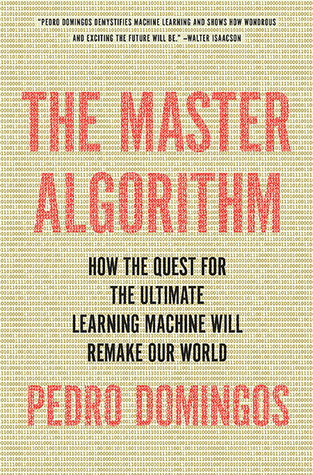The computers we rely on everyday use precise sets of instructions to carry out our human desires. These algorithms approve our credit card applications, manage our investments, offer new books and movies and jobs. We feed them data, and they return results, whether valid or useful. Watson, the computer that beat Ken Jennings, won Jeopardy primarily through brute force information retrieval, but simple learning algorithms already beat doctors in diagnosing patients. Domingos provides a historical and technical overview of the search for the ultimate learning algorithm: one capable of discovering any knowledge from data, and doing anything we want, before we even ask.
Perhaps the master algorithm will arise from a combing the best of machine learning’s five major schools of thought, which are explained in a confusing stream-of-thought of theoretical principles. Each “tribe” uses their own assumptions and rules to create an algorithm that learns.
- Symbolic: uses purely logical mathematical symbols and expressions
- Connective: reverse-engineers the human brain as a model
- Bayesian: all knowledge is uncertain, all knowledge is contingent, handles probabilistic inference
- Evolutionary: growth, learning, and change similar to natural selection
- Analogy: future predictions are based on current similarities
Despite the interesting subject matter, I find the book unstructured, its assumptions of layperson’s knowledge varied, and its lack of real examples ultimately confusing because the explanations are all through analogy. The reader of the audiobook version doesn’t help either.
I personally look forward to a time when I can buy a robot assistant that does chores, and I currently use Google, Amazon, and Netflix to manage my life. While I think it’s important to understand the technology we as a society have embraced, this is not a book I would recommend to computer science and machine learning novice.
“Armed with your new understanding of machine learning, you’re in a much better position to think about issues like privacy and data sharing, the future of work, robot warfare, and the promise and peril of AI.”
